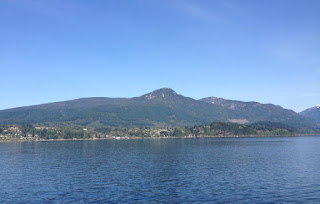Nine arrested this month on Mt. Elphinstone
Resistance is escalating in the old-growth forests of the Sunshine Coast, from blockades to tree-sits to a burning barricade. For decades, residents have used almost every strategy in the book to protect wildlife and their drinking watersheds. But the clearcut logging continues under the control of the BC government’s Timber Sale program.
Last week. protesters set a homemade roadblock on fire to stop the logging above Roberts Creek, in a bear denning area adjacent to Mount Elphinstone Provincial Park. Currently there are several camps and at least two groups of defenders on the mountain. Contact Elphinstone Logging Focus for info and to let us know if you can bring or donate gear.
As the Vancouver Sun notes, we could be returning to the days of the “War in the Woods” that wracked coastal BC in the 1990s. Environmentalists spiked trees, damaged equipment, blockaded roads, sparked international boycotts, and hundreds were carted off to mass civil disobedience trials. Loggers heaved rocks, waved nooses, wore T-shirts saying that female environmentalists should be sexually assaulted, and they burned down a peace camp and injured three young people in 1999.
Whatever tactics they employ, VICFAN can advise and train land defenders to be prepared for anything. Please sponsor their action training.

